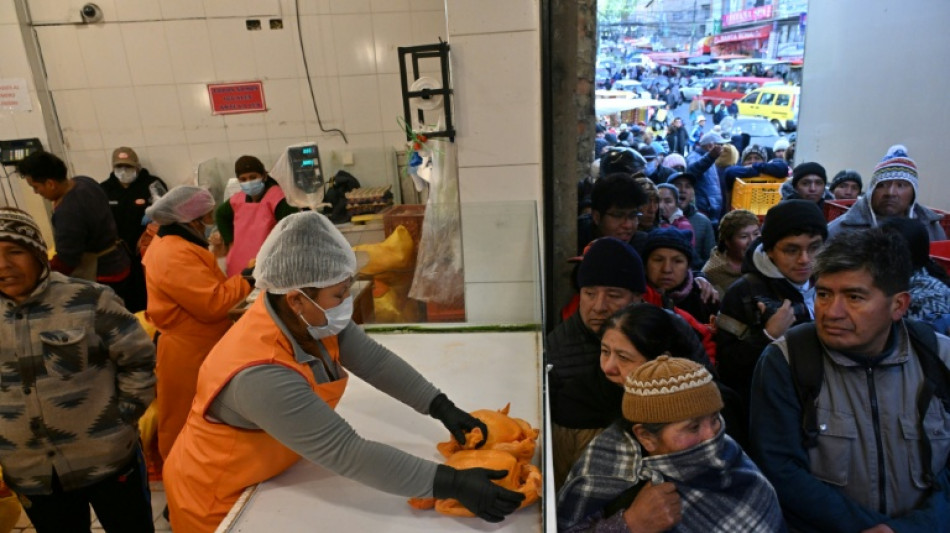
-
 Russia pounds Ukraine with 'hundreds' of drones and missiles: Kyiv
Russia pounds Ukraine with 'hundreds' of drones and missiles: Kyiv
-
Wallabies record-holder Slipper hints Perth could be final Test

-
 Son brace fuels LAFC as Messi frustrated in Miami draw
Son brace fuels LAFC as Messi frustrated in Miami draw
-
US actress-singer Selena Gomez weds music producer Benny Blanco

-
 Pakistani parents rebuff HPV vaccine over infertility fears
Pakistani parents rebuff HPV vaccine over infertility fears
-
Women's cricket set for 'seismic' breakthrough at World Cup

-
 New Zealand fly-half Barrett out of Australia rematch
New Zealand fly-half Barrett out of Australia rematch
-
Moldovans torn between pro-EU and pro-Russia vote in tense polls
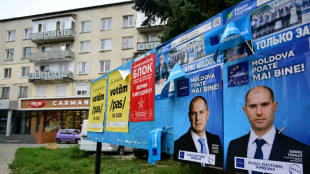
-
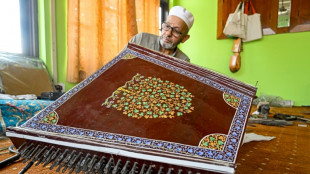 Strings of identity: Kashmir's fading music endures
Strings of identity: Kashmir's fading music endures
-
'Clog the toilet' trolls hit Indian visa holders rushing to US
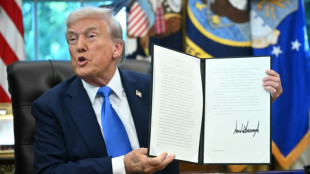
-
 Bradley: USA Ryder Cup disaster part of why crowds angry
Bradley: USA Ryder Cup disaster part of why crowds angry
-
Europe used 'anti-fragile mentality' to cope with Cup hecklers

-
 Unbeaten McIlroy faces winless Scheffler in Ryder Cup singles
Unbeaten McIlroy faces winless Scheffler in Ryder Cup singles
-
Sweeping UN sanctions return to hit Iran after nuclear talks fail
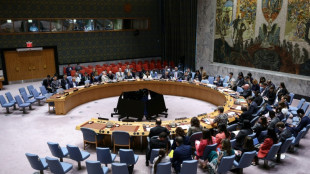
-
 Messi, Miami frustrated in Toronto stalemate
Messi, Miami frustrated in Toronto stalemate
-
Argentina protesters march for victims of live-streamed femicide
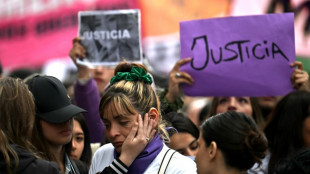
-
 Europe shrugs off intense abuse to reach brink of Ryder Cup win
Europe shrugs off intense abuse to reach brink of Ryder Cup win
-
Injury-hit PSG reclaim Ligue 1 top spot ahead of Barcelona clash

-
 Understrength PSG reclaim Ligue 1 top spot ahead of Barcelona clash
Understrength PSG reclaim Ligue 1 top spot ahead of Barcelona clash
-
Argentina protesters seek justice for victims of live-streamed femicide
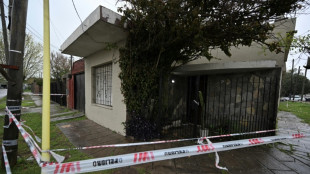
-
 Palhinha rescues point for Tottenham against winless Wolves
Palhinha rescues point for Tottenham against winless Wolves
-
Springbok Feinberg-Mngomezulu an 'incredible talent' - Erasmus

-
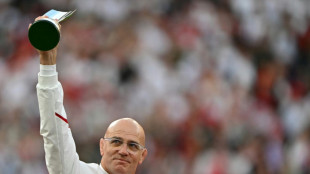 Mitchell backs England to sustain dominance after World Cup triumph
Mitchell backs England to sustain dominance after World Cup triumph
-
Zaporizhzhia nuclear plant off grid; Russia, Ukraine trade blame
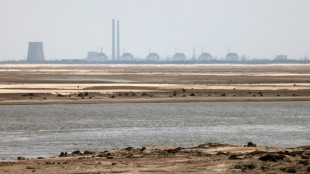
-
 McIlroy fires back at hecklers in intense Ryder Cup atmosphere
McIlroy fires back at hecklers in intense Ryder Cup atmosphere
-
Two women die trying to cross Channel from France
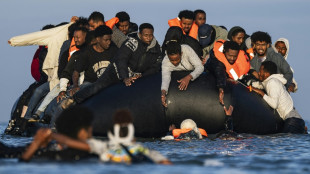
-
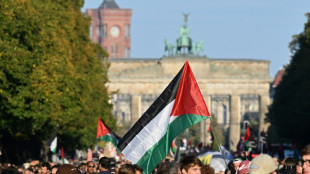 Huge Berlin protest urges end to Gaza war
Huge Berlin protest urges end to Gaza war
-
Liverpool 'deserved' defeat to Crystal Palace, says Slot
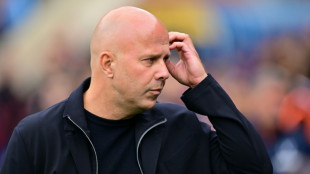
-
 Bottega Veneta shows off 'soft functionality' in Milan
Bottega Veneta shows off 'soft functionality' in Milan
-
Maresca blasts careless Chelsea after Brighton defeat
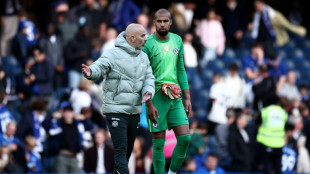
-
 Juve miss out on Serie A summmit with Atalanta draw
Juve miss out on Serie A summmit with Atalanta draw
-
Guardiola salutes dynamic Doku as Man City run riot
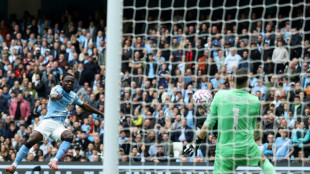
-
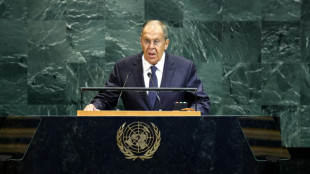 Russia warns West as Ukraine secures Patriot defenses
Russia warns West as Ukraine secures Patriot defenses
-
Ten-man Monaco miss chance to retake top spot in Ligue 1

-
 Feinberg-Mngomezulu scores 37 points as Springboks top table
Feinberg-Mngomezulu scores 37 points as Springboks top table
-
Trump authorizes 'full force' troop deployment in Portland
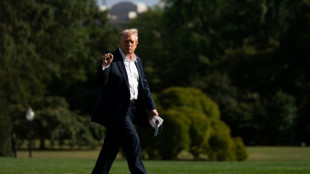
-
 Matthews at the double as England beat Canada to win Women's Rugby World Cup
Matthews at the double as England beat Canada to win Women's Rugby World Cup
-
Real Madrid 'hurting', deserved to lose derby: Alonso

-
 Handshake spat bad for cricket, says Pakistan captain ahead of India final
Handshake spat bad for cricket, says Pakistan captain ahead of India final
-
England beat Canada in Women's Rugby World Cup final

-
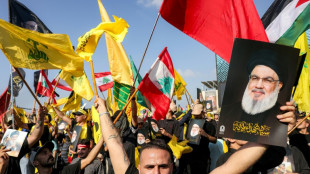 Hezbollah says it refuses to be disarmed one year after leader's killing
Hezbollah says it refuses to be disarmed one year after leader's killing
-
Atletico thrash Liga leaders Real Madrid in gripping derby

-
 Liverpool's perfect start ended by Crystal Palace, Man Utd beaten at Brentford
Liverpool's perfect start ended by Crystal Palace, Man Utd beaten at Brentford
-
Unbeaten Rahm sparks Europe to historic five-point Ryder Cup lead

-
 Dortmund keep heat on Bayern with Mainz win
Dortmund keep heat on Bayern with Mainz win
-
Under-fire Amorim accepts criticism as Man Utd crash at Brentford

-
 Sweeping UN sanctions loom for Iran after nuclear talks fail
Sweeping UN sanctions loom for Iran after nuclear talks fail
-
Canadian Vallieres pulls off cycling world title surprise in Kigali hills
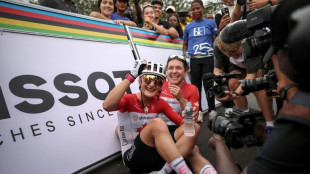
-
 Dakuwaqa outshines Bielle-Biarrey as Stade Francais beat Bordeaux-Begles
Dakuwaqa outshines Bielle-Biarrey as Stade Francais beat Bordeaux-Begles
-
West Ham hire Nuno to replace sacked Potter


'No rice, no sugar, no eggs': Bolivians despair as economy tanks
Waiting in line for hours, often in vain, for basics such as cooking oil has become a way of life in Bolivia, where anger over shortages and skyrocketing prices has exploded into violence.
Making matters worse: a campaign of roadblocks to protest the crisis has blocked major routes used for the delivery of food and medicine, fueling the scarcity.
"We never thought this situation would reach such an extreme, where we would have to stand in line for food or toilet paper," Rocio Perez, a 65-year-old pensioner told AFP at her home in La Paz.
She lives with her children and grandchildren, and the family has taken to rationing what they eat.
"We are staring into the abyss," said Perez.
At a nearby warehouse selling state-subsidized groceries, 40-year-old Sonia, who did not want to give her surname, queued in extreme cold from 5 am for cooking oil, only to leave empty-handed when stocks ran out some two hours later.
Only those who arrived at 4 am were in luck.
"I am a single mother, I have to work to support my six children... and on top of that, come and stand in this line," Sonia told AFP, clearly angry.
"I don't sleep well anymore."
Other irate customers banged on the store's metal doors and shouted at the state employees inside.
"There's no rice, no sugar, no eggs, there's nothing left," exclaimed 30-year-old Gisela Vargas, who also left with nothing.
Bolivia, home to 12 million people and an Indigenous majority, is one of the poorest countries in South America despite sitting on vast mineral resources such as gas and lithium.
In 2023, state oil company YPFB said Bolivia was running out of natural gas -- a crucial export product -- due to a lack of investment in new exploration.
A dramatic drop in gas exports led foreign currency reserves to plummet, making Bolivia unable to import sufficient fuel for its needs.
Inflation in May was 18.4 percent year-on-year, the highest in nearly two decades, and the local currency, the Boliviano, continues to lose value.
- 'I feel helpless' -
The crisis, which many Bolivians blame on President Luis Arce, has been compounded by a showdown between Arce and ex-leader Evo Morales, who retains a strong support base, especially among Indigenous people.
Morales supporters have been blockading roads since June 2.
At least four officers and one protester have been killed in clashes just weeks before elections in which Morales wants to seek a fourth term despite a two-term constitutional limit.
A survey by the Panterra consultancy in March found 89 percent of Bolivians want the country to take a "very different direction," with the rising cost of living by far the main concern.
"In terms of purchasing power, wages are deteriorating very strongly" with rising inflation, said economist Jose Luis Evia, a former member of the board of the Central Bank of Bolivia.
Francisca Flores, a 69-year-old street vendor, said she has had to cut back on chicken, formerly an affordable source of protein, after the price per kilogram doubled in just a few months.
She now eats omelets and other egg-based dishes instead.
"I feel helpless," Flores told AFP at La Garita de Lima, a busy commercial area of La Paz where hundreds of people formed a long queue as a truck started unloading chickens for sale.
"I go out with my little money... and if I can't buy anything, well, I just go home and endure it," she said.
Medicines, too, have become scarcer and more expensive.
- The left in trouble -
Bolivia saw what has been described as a short-lived "economic miracle" under the 2006-2019 presidency of Morales, with Arce as his economy minister.
Morales, Bolivia's first Indigenous president, nationalized hydrocarbons and invested the income in infrastructure and social programs.
The country experienced more than 4 percent annual growth while poverty rates tumbled from 60 percent to 37 percent, according to official figures at the time.
But critics say Morales' failure to implement structural economic reforms meant the growth was unsustainable.
Evia believes the resultant social unrest could be the undoing of the left, which has governed Bolivia for nearly two decades, in the August elections.
"There is growing consensus for change," he said.
T.Egger--VB
